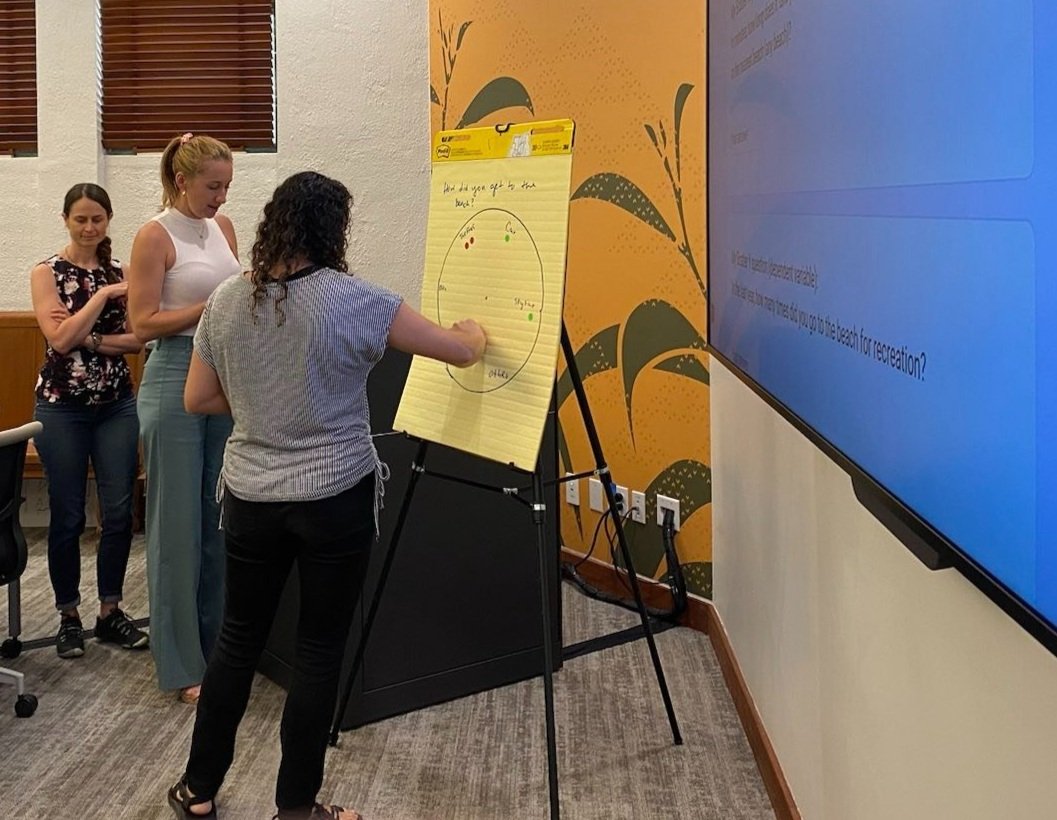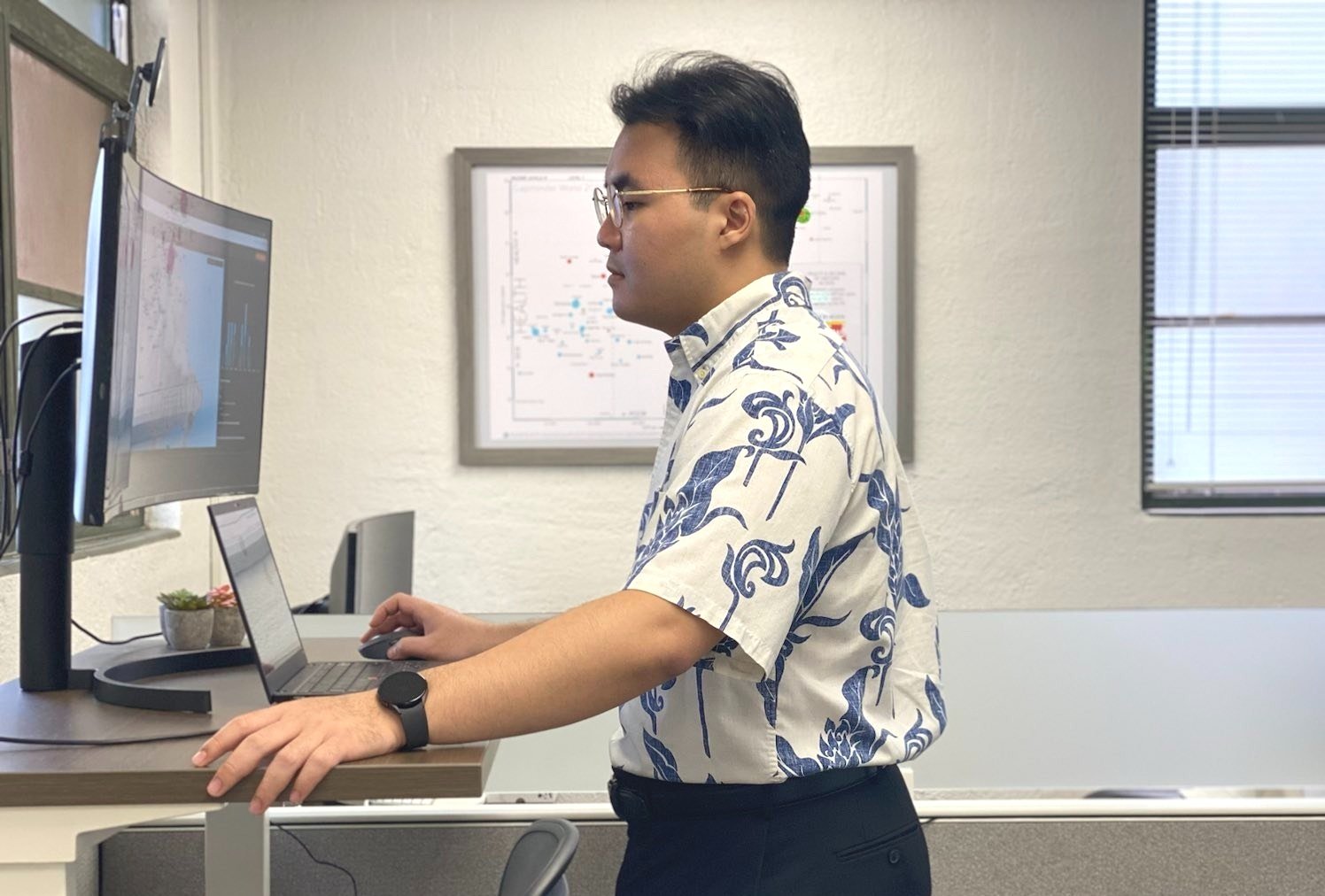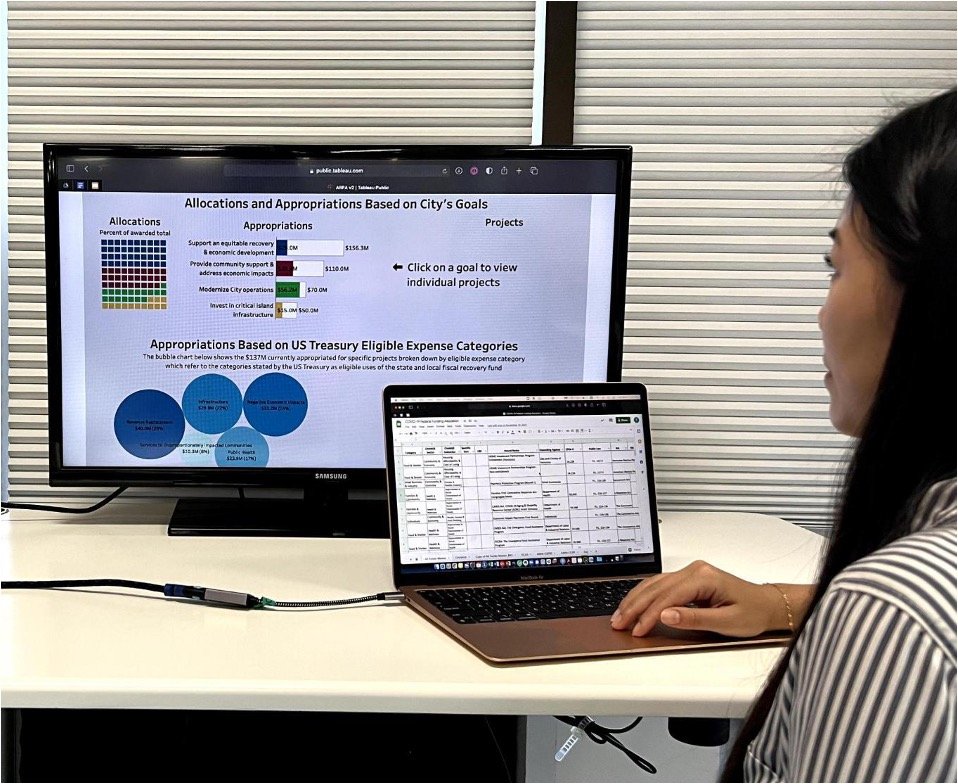News & Updates

NTEN’s Nonprofit Technology Conference: An Opportunity for Hawai‘i Nonprofits to Get Resourced
Nonprofits often lag behind for-profit entities in terms of data capacity and technology access. Lack of general funding and human resources, in addition to programmatic funding and operations structures prioritizing direct services over capacity building are all challenges that nonprofits across the country, including Hawaiʻi service providers, often face. NTEN is an organization that supports nonprofits in leveraging technology to increase impact and equity. Similar to Hawaiʻi Data Collaborative (HDC), NTEN’s focus is on providing capacity-building resources and support to nonprofits rather than offering direct services that address specific issues.

Data to Insight: Bridging the Gap with Data Literacy
We have unprecedented access to data, but what does it mean to be “data literate”? For those of us who arenʻt trained data scientists, how do we navigate, make meaning, and make choices in a “data-guided” way? According to Kendrick Leong, Research and Analysis Lead at Hawaiʻi Data Collaborative, data literacy starts with knowing where to find data and being able to discern if a source is reputable.

Addressing Hawai‘i’s Child Care Needs Through Data and Collaboration
Carol Wear, interim executive director at PATCH, has dedicated over 30 years of her career to the early childhood sector and helping families navigate the child care system. In recent years, however, Wear has witnessed the system become more challenged and strained. While the current shortage is concerning, stakeholders of the early childhood sector, have mobilized to respond to the issue through innovative program design and cross-sector partnerships and collaborations to begin working towards ensuring all children in Hawai‘i have access to quality child care.

The Native Hawaiian Data Landscape: Making Data Available to Better Address Household Need
Justin Hong began working at the intersection of data and the Native Hawaiian community in 2010. Though he’s observed challenges inherent to cross-sector collaboration as well as barriers to data accessibility over the years, Hong is hopeful given the progress made to date. Looking ahead, Hong sees the potential for further strategic growth and collaboration in the field of Native Hawaiian data and accessibility.

Using Data to Democratize Education on Hawai‘i Island
Chancellor Rachel Solemsaas of Hawai’i Community College (HCC) is clear about her priority when it comes to serving students in need: democratizing education. She defines democratizing education as open access, equity, and commitment to success. To make these priorities a reality, we’ve partnered with Chancellor Solemsaas and her team to leverage existing data while also cultivating a data culture at HCC that not only informs decision-making, but teaches students how to be data literate as well.

The Bigger Picture: Research and Analysis to Make Data Meaningful and Inform Action
As the Research and Analysis Lead at Hawaiʻi Data Collaborative (HDC), Kendrick Leong works with local organizations to develop actionable insights, contribute to collective understanding, and develop strategies to better address household need. Part storytelling, part hypothesis development and testing, and part contextualization, HDC’s research and analysis support elevates actionable data insights from those working closest to an issue to make a real difference for nonprofits, policy makers, and the people they serve.
In this blog post, Kendrick shares HDC’s research and analysis process that consists of five steps designed to operationalize and maximize the value of available data.

Start Collecting Data: A Guide to Accessible Tools for Nonprofits
Effective data collection can help you optimize virtually every aspect of your organization, and it doesn’t necessarily require costly tools, hires, or consultants. From marketing to fundraising to strategic planning, data supports nonprofits in being informed and decisive. The current generation of online survey tools and resources make it easy for nonprofits to enhance and leverage their data collection.

Maʻi Movement: Using Data to Identify an Issue, Legitimize It, Then Make Change
In 2018, Nikki-Ann Yee was living abroad and had never heard of period poverty. And yet, once named and defined, she recognized it affected far too many people who menstruate not only abroad, but also in Hawaiʻi.
When Nikki moved back to the U.S. in 2020 she connected with her two sisters, Brandy-Lee Yee and Jamie-Lee Kapana, over this issue and Maʻi Movement Hawaiʻi was born. Through passion, coalition-building, and data collection, Maʻi Movement went from being an idea to launching a school pilot program, implementing a statewide distribution system, and passing state legislation in less than two years.

Uplifting Our Community Through Building Data Capacity
Over the past year, through our community partnerships, our team heard a consistent desire for capacity boosts to address organizational data challenges. Oftentimes, the challenge is so great that understanding where to even begin is the biggest barrier! At the Hawai‘i Data Collaborative, we aspire to be a gateway to a full spectrum of data support services to enhance the data capacities of organizations working to support households in need. We welcome you to read this blog post to learn more about how we support our partners in building their internal data capacities to unlock the data insights they need to inform their work.

Cultivating a Data Culture Is Mission-Critical At Waikiki Community Center
Earlier this year, we met with Caroline Hayashi, executive director of Waikiki Community Center, to learn about WCC’s work and how well data enables their ability to carry out their mission. Expecting to hear about the data challenges they experience, I was pleasantly surprised to learn that they consider data essential in their ability to do their work. And despite being a small team with limited access to funds, I was fascinated to learn about their commitment to refining and growing their services by employing a very simple data strategy that has continued to serve them well for the past nine years.

Two Accessible Data Management Solutions For Non-Profits
Finding the information you need quickly is critical for any organization. A good data management system not only improves efficiency by eliminating manual processes, but also allows organizations to leverage and optimize the use of the data they collect to make decisions and take action. If your organization’s data management processes have become more of a cumbersome distraction to work around rather than a solution to streamline your operations, a data management system could be the solution. This guide will help you choose the right data management system for your organization’s needs.

Aligning Data to Outcomes: Our Approach to Developing a Thoughtful Data Strategy
Whether it's providing health services to vulnerable kupuna in their homes or supporting keiki in classrooms, every organization can benefit from a thoughtful data strategy. Developed thoughtfully, a data strategy weaves data into an organization’s overall strategy and can be key to advancing your organization's mission. It identifies what types of data are important to your organization and how you will capture and evaluate data on an ongoing basis to adapt your services or programs. Over time, this approach to data can even shape your organization’s values, culture, and future strategic direction.

Working With Census Data Today
Many of us look to “Census data” to better understand the circumstances of households and communities in Hawai‘i. In his work to provide research and analysis support to local organizations, Kendrick Leong, Hawai‘i Data Collaborative’s Research & Data Analysis Lead, often helps teams reference several different Census products depending upon their specific need. Following the onset of the pandemic, Kendrick has also helped organizations understand and navigate the limitations of Census data for understanding circumstances today. In this post, Kendrick distinguishes some of the more popular Census data products, runs through what you need to know to work with them, and lays out some important limitations of using Census data today.

A Simple Guide to Data Visualization for Non-Profits
Data visualization is becoming an increasingly popular tool for organizations to share and make sense of their data. To help those interested in getting started with data visualization, Hawai‘i Data Collaborative’s data visualization and analysis lead, Tiana Tran, has created this guide that outlines the main considerations when choosing a visualization tool, points to resources for learning how to use that tool, and shares Tiana’s favorite resources for learning how to create effective visualizations.
